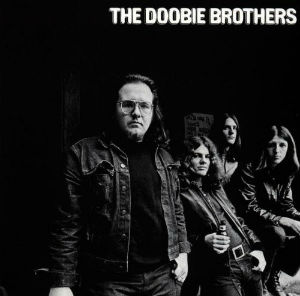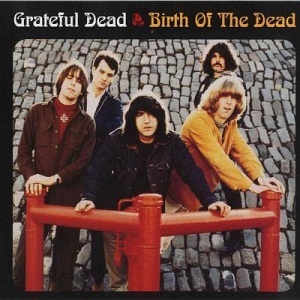Related Research Articles

Moby Grape is an American rock band founded in 1966. Part of San Francisco's psychedelic music scene, the band merged elements of rock and roll, folk music, pop, blues, and country. They were one of the few groups of which all members were lead vocalists and songwriters. The group's first incarnation ended in 1969, in part due to members Bob Mosley and Skip Spence suffering from mental illness. The group has reformed many times afterwards and continues to perform occasionally.

The Doobie Brothers are an American rock band formed in 1970 in San Jose, California, known for their flexibility in performing across numerous genres and their vocal harmonies. Active for five decades, with their greatest success during the 1970s, the group's current lineup consists of founding members Tom Johnston and Patrick Simmons, alongside Michael McDonald and John McFee, and touring musicians including John Cowan, Marc Russo (saxophones), Ed Toth (drums), and Marc Quiñones (percussion).

Live/Dead is the first official live album released by the rock band Grateful Dead. Recorded over a series of concerts in early 1969 and released later the same year, it was the first live rock album to use 16-track recording.

Wally Heider Studios was a recording studio founded in San Francisco in 1969 by recording engineer and studio owner Wally Heider. Between 1969 and 1980, numerous notable artists recorded at the studios, including Creedence Clearwater Revival, Jefferson Airplane, Crosby, Stills, Nash & Young, and The Grateful Dead. The studio changed ownership in 1980 and was renamed Hyde Street Studios, which is still in operation today.

The Doobie Brothers is the debut studio album by American rock band The Doobie Brothers. The album was recorded at Pacific Recorders in San Mateo, California and released on April 30, 1971, by Warner Bros. Records. It is their only official studio album to feature original bass player Dave Shogren on all tracks, who left during the recording of their second album.

Aoxomoxoa is the third studio album by the Grateful Dead. It was one of the first rock albums to be recorded using 16-track technology. The title is a meaningless palindrome, usually pronounced.
Jerry Miller is an American songwriter, guitarist and vocalist. He performs as a solo artist and as a member of the Jerry Miller Band. He is also a founding member of the 1960s San Francisco band Moby Grape, which continues to perform occasionally. Rolling Stone included Miller at number 68 on their list of the 100 greatest guitarists of all time and Moby Grape's album Moby Grape at number 124 from listed 500 greatest albums of all time. Miller's longtime guitar is a Gibson L-5 CES Florentine guitar which he calls "Beulah".

John McFee is an American singer, songwriter, guitarist, record producer, and multi-instrumentalist, and long-time member of The Doobie Brothers.

Birth of the Dead is a two-CD compilation album chronicling the early years of the San Francisco psychedelic band the Grateful Dead. The set was originally part of the twelve-CD box set The Golden Road (1965–1973), released on October 16, 2001, then was released as a stand-alone album on March 25, 2003. The album consists of various studio and live tracks of seven original songs and a number of covers.

Before Time Began is the eleventh studio album and thirteenth album overall by the country rock group the New Riders of the Purple Sage. It was released in 1986 on the Relix Records label.

Multitrack recording of sound is the process in which sound and other electro-acoustic signals are captured on a recording medium such as magnetic tape, which is divided into two or more audio tracks that run parallel with each other. Because they are carried on the same medium, the tracks stay in perfect synchronization, while allowing multiple sound sources to be recorded at different times.
Wally Heider was an American recording engineer and recording studio owner who refined and advanced the art of studio and remote recording and was instrumental in recording the San Francisco Sound in the late 1960s and early 1970s, recording notable acts including Jefferson Airplane, Crosby, Stills, Nash & Young, Van Morrison, the Grateful Dead, Creedence Clearwater Revival, and Santana.
Dan Healy is an audio engineer who often worked with the American rock band the Grateful Dead. He succeeded Alembic and Owsley "Bear" Stanley as the group's chief sound man after the Wall Of Sound in 1974 and subsequent band hiatus through 1975. A favorite amongst Deadheads for many years, he helped to introduce a tapers section at Grateful Dead concert to allow audience recording of live concerts. Healy would often provide direct output from the soundboard for the tapers to directly patch into their recorders.

Fillmore: The Last Days is a live album, recorded at the Fillmore West in San Francisco, California from June 29 to July 4, 1971. It contains performances by 14 different bands, mostly from the San Francisco Bay Area, including Santana, the Grateful Dead, Hot Tuna, Quicksilver Messenger Service, and the New Riders of the Purple Sage. It was released by Columbia Records in June 1972 as a three-disc LP. It was re-released by Epic Records in 1991 as a two-disc CD.
The Automatt was a sound recording studio in San Francisco, California, promoted for its early mix automation system. During its eight active years, 1976 to 1984, it was one of the top recording studios in the region. The Automatt was founded by producer David Rubinson and opened in an existing studio subleased from Columbia Records, who continued to record in the same building for a few years; thus it was sometimes referred to as CBS/Automatt. Rubinson leased the whole building in 1978 and from that point, operated three rooms for recording and mixing, a mastering room, a rehearsal room, and offices. The studio complex was known for its top-notch equipment, for the hit records it produced, and for the famous artists who recorded there. Under Rubinson and chief engineer Fred Catero it served as the training ground for respected recording engineers such as Leslie Ann Jones and producers such as Scott Mathews.

Fantasy Studios was a music recording studio in Berkeley, California, at the Zaentz Media Center, known for its recording of award-winning albums including Journey's Escape and Green Day's Dookie. Built as a private recording studio for artists on the Fantasy Records label in 1971, it was opened to the public in 1980 for recording, mixing and mastering. It was permanently closed on September 15, 2018.
David Rubinson is an American recording engineer and music producer, who was particularly involved in music production from the 1960s to the 1980s. He produced such diverse acts as Moby Grape, Herbie Hancock, the Pointer Sisters, Santana, and Taj Mahal. Rubinson also founded The Automatt Recording Studios and was the music producer for the film Apocalypse Now.

Hyde Street Studios is an American music recording facility in San Francisco, California. Located at 245 Hyde Street and previously occupied by Wally Heider Studios, it became Hyde Street Studios in 1980 when it was taken over by local songwriter, musician, and independent record producer Michael Ward with his two partners Tom Sharples and former Tewkesbury Sound studio owner Dan Alexander, who initially had a 50 percent share in the business. Ward assumed full ownership in 1985.
John Cuniberti is an American recording engineer and producer.
Pacific High Recording was an independent recording studio in San Francisco. Founded in 1968, the studio was part of the San Francisco sound and the location for recordings by such notable artists as Sly and the Family Stone, the Grateful Dead, The Charlatans, Quicksilver Messenger Service, and Van Morrison.
References
- ↑ Reyes-Kulkarni, Saby (11 October 2018). "Late Producer Paul Curcio Looks Back on Work with Metallica and The Grateful Dead, and the Early Days Of Multi-Track Recording". billboard.com. Billboard. Retrieved 3 August 2022.
- 1 2 3 4 Harvey, Steve (1 October 2018). "Metallica Producer Paul Curcio, Dead at 74". mixonline. Future plc. Retrieved 3 August 2022.
- ↑ Selvin, Joel (1996). San Francisco: The Musical History Tour: A Guide to Over 200 of the Bay Area's Most Memorable Music Sites. San Francisco: Chronicle Books. p. 165. ISBN 0-8118-1007-0.
- ↑ Jackson, Blair (1 November 2004). "Out of the Ashes, Into the '60s". mixonline.com. Future plc. Retrieved 3 August 2022.
- 1 2 3 4 5 6 "Pacific Recorders/Pacific Recording Discography" . Retrieved 30 August 2022.
- ↑ Jackson, Blair (2006). Grateful Dead Gear: The Band's Instruments, Sound Systems, and Recording Sessions from 1965 to 1995. San Francisco, United States: Backbeat Books. ISBN 978-0-87930-893-3.